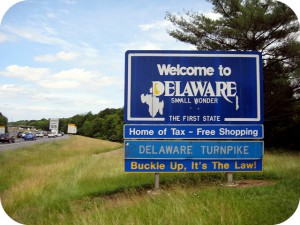 Last week’s revelations surrounding the Panama Papers scandal set off a firestorm of debate about offshore tax avoidance. Media outlets across the globe exposed the names of many high profile clients of the offending law firm Mossack Fonseca, including soccer superstar Lionel Messi and several heads of state. As many in the U.S. pointed out, however, the Panamanian firm’s roster of shell company-seeking clients had a noticeable lack of Americans. According to some experts, this is due to lenient incorporation laws in states like Nevada and Delaware that allow Americans to set up income-shielding shell companies right at home.
Last week’s revelations surrounding the Panama Papers scandal set off a firestorm of debate about offshore tax avoidance. Media outlets across the globe exposed the names of many high profile clients of the offending law firm Mossack Fonseca, including soccer superstar Lionel Messi and several heads of state. As many in the U.S. pointed out, however, the Panamanian firm’s roster of shell company-seeking clients had a noticeable lack of Americans. According to some experts, this is due to lenient incorporation laws in states like Nevada and Delaware that allow Americans to set up income-shielding shell companies right at home.
In fact, Nevada ranked as Mossack Fonseca’s seventh most common destination for dummy corporations, with more than 1,000 companies listed in the firm’s records. For those who lack connections with an obscure Panamanian law firm, though, there are plenty of domestic companies that can help hide cash. For instance, the website of Corporation Makers boasts that owning a business can remain “your deep dark secret” for just $309. These companies take advantage of a Nevada law that allows “nominees” to file documents for a corporation while its true owners remain anonymous. The situation is even worse in Delaware thanks to century-old laws that shield management from liability and eliminate protections for shareholders. As a result, more than 1.1 million companies call Delaware home, even though 95 percent of them have their principal location in another state or country.
These laws enable individuals and companies to hide their income in much the same way as Mossack Fonseca’s global array of shell corporations. “The mechanisms are pretty much the same here,” said Matthew Gardner, executive director of the Institute on Taxation and Economic Policy. “There’s nothing special happening in Panama. Panama is pretty much a microcosm of what the U.S. is a willing partner in.” So why do these laws exist in the first place? Since states are often in competition with one another to draw in companies, over the years many have passed legislation that benefits business owners. Places like Nevada and Delaware have taken this idea to extremes, however, potentially creating an environment that harms American business as a whole.
Questions:
- Do lax incorporations laws in Nevada and Delaware motivate other states to adopt similar legislation?
- Why do states offer companies perks like tax breaks and subsidies?
Source: Matt Pearce, “For Just $309, You Too Can Hide Your Assets — In The U.S.” Los Angeles Times, April 7, 2016. Photo by MPD01605.
